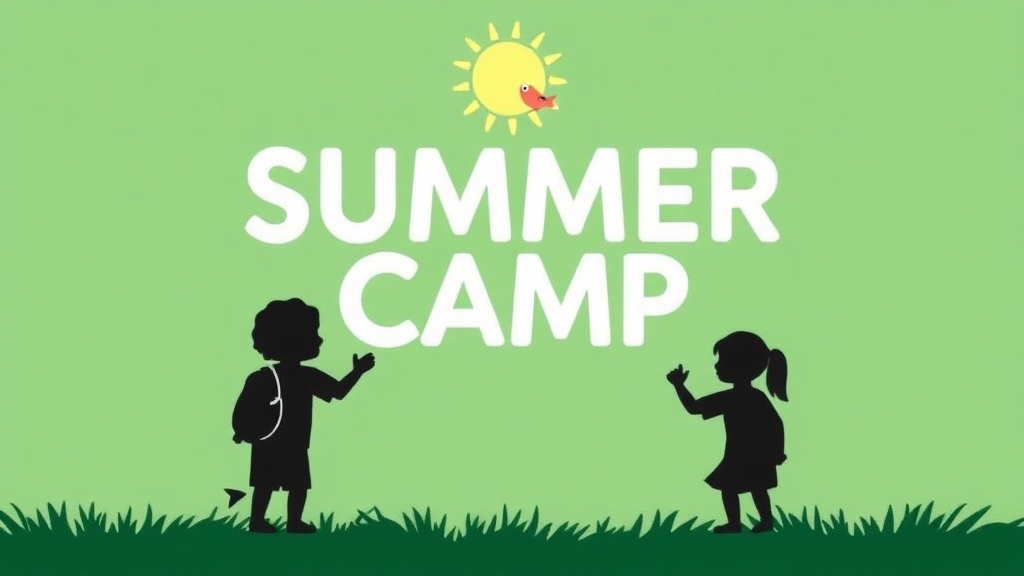Summer Adventures at Natural History Museums
Summer is the perfect time for kids to embark on adventures that are both fun and educational, and what better place to do that than at a natural history museum? In this article, we’ll explore the unique benefits of museum-based summer camps, delve into the exciting activities and workshops they offer, and provide tips on how to choose the right camp for your child. From hands-on science experiments to interactive exhibits, these camps promise an unforgettable experience.
We’ll also guide you through the registration and enrollment process, share participant reviews and testimonials, and answer frequently asked questions to ensure you and your child are fully prepared. Whether you’re looking to spark your child’s curiosity, boost their social skills, or simply provide them with a safe and engaging environment, a summer camp at a natural history museum might just be the perfect fit. So, let’s dive in and discover how these camps can make this summer one to remember!
Exploring Summer Camps at Natural History Museums
Why Consider a Summer Camp at a Natural History Museum?
So, you’re thinking about summer camps, and you’re wondering if a natural history museum is the right fit for your child. Let’s be realâfinding the perfect summer camp can be a headache. You want something educational but also fun enough to keep your child engaged. That’s where natural history museums come into play. These camps offer a unique blend of learning and adventure, making them a top pick for many parents.
What Makes Museum-Based Camps Stand Out?
Natural history museums are treasure troves of knowledge. Imagine your child spending their summer surrounded by dinosaur bones, ancient artefacts, and interactive exhibits. Sounds cool, right? But it’s not just about the exhibits. These camps are designed to be immersive, hands-on learning experiences that go beyond what kids get in a typical classroom setting.
Benefits of Natural History Museum Camps
- Educational Value: Your child will learn about history, science, and nature in an engaging way.
- Interactive Learning: Camps often include hands-on activities like fossil digs and science experiments.
- Expert Guidance: Museum staff and educators are usually experts in their fields.
- Social Interaction: Kids get to make new friends who share similar interests.
What Can Your Child Expect?
Popular Activities and Workshops
So, what exactly will your child be doing at these camps? Here’s a sneak peek:
- Fossil Digs: Kids can dig for fossils and learn about palaeontology.
- Science Experiments: From chemistry to physics, there are plenty of experiments to keep young minds busy.
- Nature Walks: Guided tours that teach kids about local flora and fauna.
- Interactive Exhibits: Hands-on exhibits that make learning fun.
How to Choose the Right Camp
Choosing the right camp can feel overwhelming, but it doesn’t have to be. Here are a few tips to help you out:
- Research: Look into different museums and what their camps offer. Check out our top picks and tips for 2024 to get started.
- Visit: If possible, visit the museum beforehand to get a feel for the environment.
- Ask Questions: Don’t hesitate to ask about the camp’s curriculum, staff qualifications, and safety measures.
- Read Reviews: Check out what other parents are saying.
Getting Ready for Camp
Preparing Your Child
Preparation is key to a successful camp experience. Here’s how you can get your child ready:
- Pack Smart: Make sure they have all the essentials like snacks, water, and appropriate clothing. For more ideas on what to pack, see our guide on essential tips and ideas.
- Talk It Out: Discuss what they can expect and address any concerns they might have.
- Encourage Curiosity: Get them excited about the topics they’ll be exploring.
Tips for a Memorable Visit
Want to make the most out of your child’s camp experience? Here are some pro tips:
- Engage with Staff: Encourage your child to ask questions and interact with the instructors.
- Stay Informed: Keep an eye on any updates or changes in the camp schedule.
- Document the Experience: Take photos and keep a journal to remember the highlights.
Hear It from Other Parents
Participant Reviews and Testimonials
Don’t just take our word for it. Here’s what other parents have to say:
- “My daughter had the best time at the museum camp. She came home every day excited to share what she learned.”
- “The staff were fantastic and really knew how to engage the kids.”
How to Sign Up
Registration and Enrollment Process
Ready to enrol? Here’s a quick rundown of the process:
- Visit the Museum’s Website: Most museums have an online registration form.
- Fill Out the Form: Provide all necessary details about your child.
- Payment: Complete the payment to secure your spot.
- Confirmation: Look out for a confirmation email with all the details.
Got Questions?
Frequently Asked Questions
Still have questions? Here are some FAQs:
Benefits of Museum-Based Summer Camps
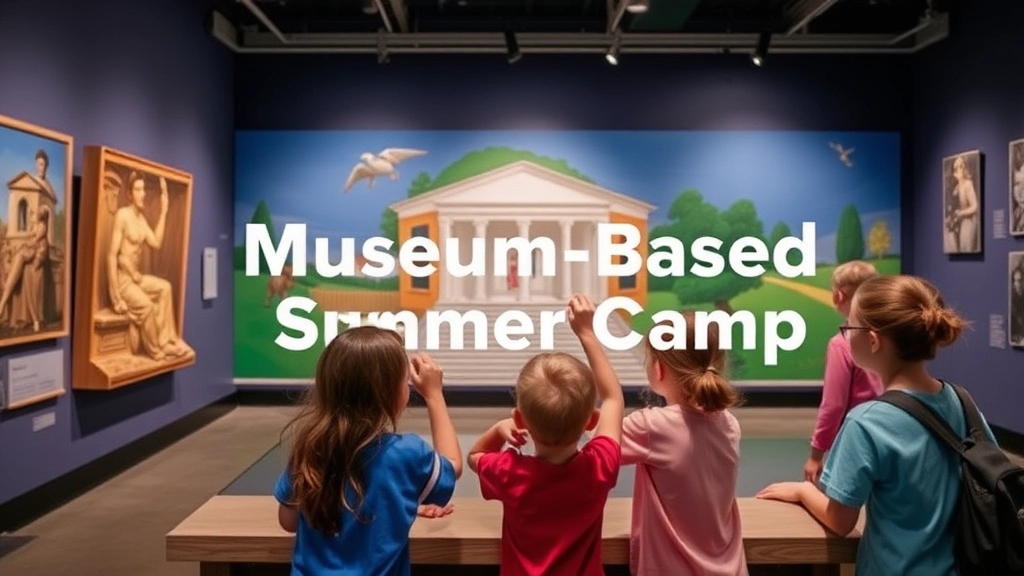
Alright, let’s talk about the benefits of museum-based summer camps.
Why should you consider sending your child to one?
First off, ever worry about your kids wasting their summer glued to screens?
Yeah, me too.
Museum camps are a game-changer.
They combine fun with education.
Your child gets to explore, learn, and grow—all while having a blast.
Learning Made Fun
Museums are treasure troves of knowledge.
Imagine your kid learning about dinosaurs, ancient civilisations, or marine biology.
But here’s the kicker—they do it through hands-on activities.
No boring lectures.
Just pure, engaging, interactive learning.
Social Skills
Kids meet other kids.
They work together on projects.
They share ideas.
They make friends.
In a nutshell, their social skills get a serious boost.
Boosts Curiosity
These camps spark curiosity.
They encourage kids to ask questions.
To explore.
To think critically.
And let’s be real—curiosity is the engine of lifelong learning.
Expert Guidance
Museum staff are pros.
They know their stuff.
And they love sharing it with kids.
Your child gets to learn from the best.
Safe Environment
Worried about safety?
Museums are some of the safest places for kids.
They’re well-supervised.
And they have strict safety protocols.
Real-Life Examples
Last summer, my niece went to a museum camp.
She came back talking about fossils and ancient Egypt.
She even made a mini volcano that erupted.
She had a blast and learnt so much.
And she’s already asking to go back this year.
Quick Recap
- Interactive Learning: Hands-on activities make learning fun.
- Social Skills: Kids make friends and learn to work in teams.
- Boosts Curiosity: Encourages critical thinking and exploration.
- Expert Guidance: Learning from museum professionals.
- Safe Environment: Well-supervised and secure.
So, if you’re looking for a summer camp that’s both fun and educational, a museum-based camp is a no-brainer.
Trust me, your kid will thank you.
And they’ll have stories to tell that’ll blow your mind.
Popular Activities and Workshops
Wondering what your child will actually do at a museum-based summer camp? You’re not alone. It’s a common concern for parents who want their kids to have fun, learn, and maybe even get a little inspired. So, let’s dive into the activities and workshops that make these camps a hit.
Hands-On Science Experiments
Kids love getting their hands dirty, right? Well, museum camps know this, so they often include hands-on science experiments. Imagine your child learning about fossils by actually digging for them or understanding how volcanoes work by creating mini-eruptions. These activities aren’t just fun; they make science real and exciting.
Interactive Exhibits
Museums are packed with interactive exhibits. At camp, your child won’t just look at these displays; they’ll engage with them. Think scavenger hunts that lead kids through dinosaur bones or interactive screens that let them explore the deep sea. It’s all about making learning active and engaging.
Creative Workshops
Got a little artist or writer on your hands? Many camps offer creative workshops where kids can draw, paint, or even write stories inspired by what they’ve seen. These sessions help kids express their creativity while reinforcing what they’ve learned.
Nature Walks and Outdoor Activities
Some museum camps incorporate nature walks and outdoor exploration. Kids might explore nearby parks or gardens, observing wildlife and plant life. It’s a great way to connect the dots between museum exhibits and the real world.
Storytelling Sessions
Kids love stories, and museums have plenty of them. Storytelling sessions bring history and science to life, making abstract concepts relatable. Whether it’s a tale about ancient civilisations or the journey of a space mission, these sessions captivate young imaginations.
Workshops Led by Experts
Many museums offer workshops led by real scientists, historians, or artists. These experts share their knowledge and passion, answering questions and sparking curiosity. It’s like having a personal mentor for a day.
Group Projects and Presentations
Teamwork is key, and camps often include group projects where kids collaborate on a presentation or a model. This not only reinforces what they’ve learned but also builds communication and leadership skills.
For more detailed information on how to keep your child engaged and excited during summer, check out our guide on engaging summer camp curriculum. And if you’re looking for creative ideas to make their summer unforgettable, don’t miss our article on summer camp themes.
Choosing the Right Camp for Your Child
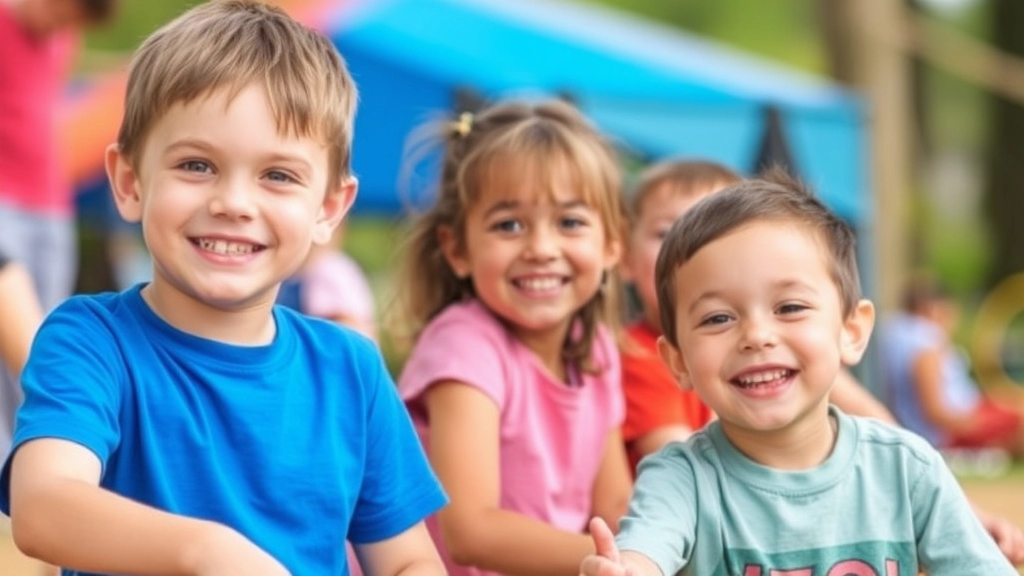
How do you pick the right summer camp for your kid?
It’s a big decision, right?
There are so many options, and you want to make sure it’s a perfect fit.
Let’s break it down.
Know Your Child’s Interests
First off, what’s your kid into?
Dinosaurs? Space? Ancient Egypt?
Natural history museums have camps that cater to all sorts of cool stuff.
Check the Camp’s Focus
Not all camps are created equal.
Some might be heavy on science experiments.
Others might focus on history or art.
Look for a camp that matches your child’s passions.
Consider Age Groups
Make sure the camp is age-appropriate.
You don’t want your 7-year-old feeling out of place in a group of teenagers.
Most camps will have specific age brackets.
Look at the Schedule
How long is the camp?
Is it a week-long or just a few days?
Does it fit into your summer plans?
Ask About the Activities
What will your child be doing all day?
Hands-on workshops?
Field trips?
Guest speakers?
The more you know, the better you’ll feel about your choice.
Check Reviews and Testimonials
Don’t just take the camp’s word for it.
Look for reviews from other parents.
Word of mouth is gold.
Safety First
What are their safety protocols?
How do they handle emergencies?
This is non-negotiable.
Cost and Value
Last but not least, what’s the price tag?
Is it worth it?
Sometimes, paying a bit more gets you a lot more value.
Quick Recap:
- Interests: Match the camp to your child’s passions.
- Focus: Science, history, art – what’s their thing?
- Age Groups: Make sure it’s age-appropriate.
- Schedule: Does it fit into your plans?
- Activities: Know what they’ll be doing.
- Reviews: Trust other parents’ experiences.
- Safety: Check their protocols.
- Cost: Is it worth the money?
Choosing the right camp can make or break your child’s summer.
Get it right, and they’ll have memories for a lifetime.
Preparing for the Camp Experience
Alright, let’s talk about getting your kid ready for a summer camp at a natural history museum. If you’re anything like me, you’ve got a lot of questions and maybe a few worries. So, let’s dive in and get you sorted.
What Should My Child Bring?
Packing can be a headache, but it doesn’t have to be. Here’s a quick list to keep things simple:
- Comfortable Clothing: Think layers. Museums can be chilly inside, even in summer.
- Snacks and Water: While some camps provide meals, it’s always good to pack a few healthy snacks and a refillable water bottle.
- Notebook and Pen: Great for jotting down cool facts or sketching exhibits.
- Sunscreen and Hat: For any outdoor activities.
- Backpack: To carry everything comfortably.
What Will They Learn?
You might be wondering, “Is this just glorified babysitting?” Absolutely not. These camps are packed with educational goodness. Your child will:
- Explore Exhibits: Hands-on learning with real artefacts.
- Engage in Workshops: From fossil digs to science experiments.
- Meet Experts: Real scientists and historians who make learning fun.
How to Prep Your Child Mentally
Let’s face it, not every kid is thrilled about camp. Here’s how to get them excited:
- Talk About It: Discuss what they’ll see and do. Show them pictures of the museum.
- Visit the Museum: If possible, take a quick trip before camp starts.
- Set Expectations: Explain the rules and what a typical day will look like.
Stories from the Trenches
When my nephew went to a museum camp, he was nervous about making friends. But guess what? By the second day, he was leading a group project on dinosaurs. The key was prepping him with what to expect and encouraging him to be open to new experiences.
Checklist for Parents
Here’s a quick checklist to make sure you’ve got everything covered:
- Registration Confirmation: Double-check dates and times.
- Emergency Contacts: Make sure the camp has your info.
- Special Needs: Inform the staff about any allergies or medical conditions.
- Drop-off and Pick-up Plan: Know where to go and when.
For more detailed information on what to expect and how to prepare, check out our Summer Camp Activities: Fun and Learning Combined and our comprehensive Summer Camp Starter Pack.
Tips for a Memorable Visit
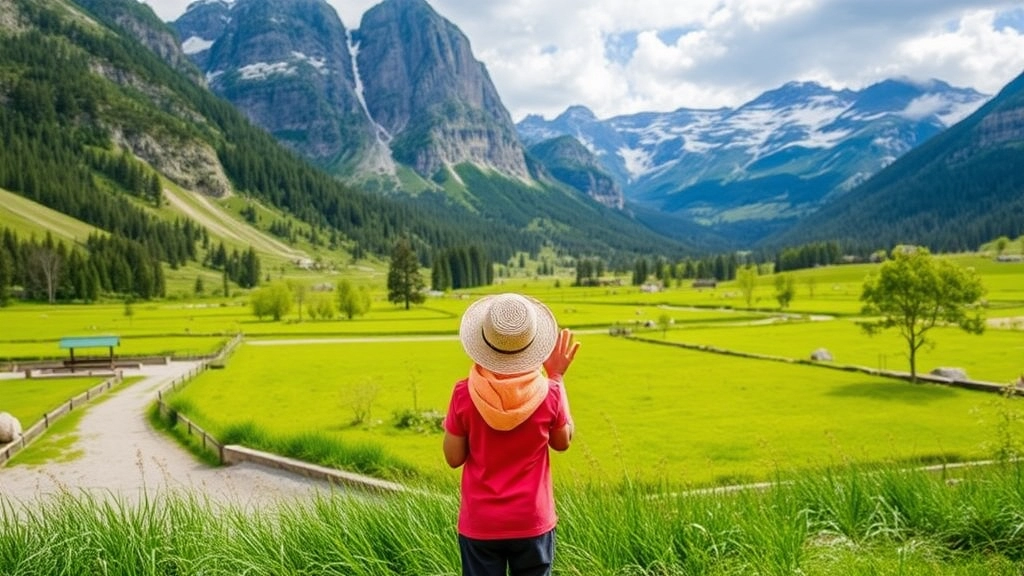
Worried about making the most of your museum camp visit?
Let’s break it down.
You want this to be epic for your child, right?
Here’s how.
Plan Ahead
- Check Schedules: Know the camp’s daily itinerary.
- Pack Smart: Bring essentials like a water bottle, snacks, and a hat.
- Dress Comfortably: Museums can be chilly, so layers are key.
Engage with the Experience
- Ask Questions: Encourage your child to be curious.
- Join Workshops: These are gold for hands-on learning.
- Explore Exhibits: Don’t just stick to the camp areas.
Make It Fun
- Create a Game: Turn learning into a scavenger hunt.
- Share Stories: Connect exhibits to personal stories or history.
- Capture Memories: Take photos, but also be present.
Connect with Others
- Meet Other Parents: Share tips and experiences.
- Encourage Friendships: Camps are great for making new pals.
Reflect and Discuss
- Talk About the Day: What did your child love? What sparked their interest?
- Plan Future Visits: Keep the excitement alive.
Remember, a museum camp is about discovery and fun.
Keep it simple and engaging.
And your child will have a blast.
Participant Reviews and Testimonials
Alright, let’s dive into what really matters â the participant reviews and testimonials. You’ve got questions, right? “Is this museum camp worth it? Will my kid enjoy it? What do other parents say?” Well, you’re in the right place. Let’s break it down.
Real Questions, Real Answers
Parents often wonder:
- “Will my child actually learn something valuable?”
- “Is it safe and well-organised?”
- “Are the activities engaging enough to keep my kid excited?”
These are valid concerns, and the best way to address them is by hearing straight from those who’ve been there.
Honest Feedback from Participants
John, a father of two, shared:
“I was sceptical at first, but the camp exceeded my expectations. My kids came home every day buzzing with excitement about dinosaurs and ancient civilisations. They even made new friends!”
Sarah, a mum of a 9-year-old, noted:
“My daughter loved the hands-on workshops. The staff were knowledgeable and patient, making the learning experience fun and interactive.”
What Kids Are Saying
Tommy, age 8:
“I loved the fossil digging! It felt like I was a real scientist finding dinosaur bones. I want to go back next year!”
Emily, age 10:
“The scavenger hunt was my favourite. I learned so much about different animals and plants. It was like a big adventure!”
Common Themes in Reviews
Here’s what keeps popping up in reviews:
- Engaging Activities: Kids are not just passive learners; they get to be hands-on and interactive.
- Knowledgeable Staff: The educators and guides know their stuff and know how to make it fun.
- Safe Environment: Parents feel comfortable leaving their children, knowing they’re in good hands.
- Social Benefits: Kids make new friends and improve their social skills.
Key Takeaways
So, what’s the verdict? Based on participant reviews and testimonials, museum-based summer camps are a hit. They offer a mix of education, adventure, and social interaction that keeps kids coming back year after year.
If you’re still on the fence, consider this: the best way to know if it’s right for your child is to give it a shot. With glowing reviews and happy campers, it’s a safe bet that your kid will have a blast.
Ready to take the plunge? Check out the engaging summer camp curriculum guide to get started. Trust me, you won’t regret it.
For more tips on ensuring a great camp experience, visit our ultimate guide to summer camp sleepaway fun.
Registration and Enrollment Process
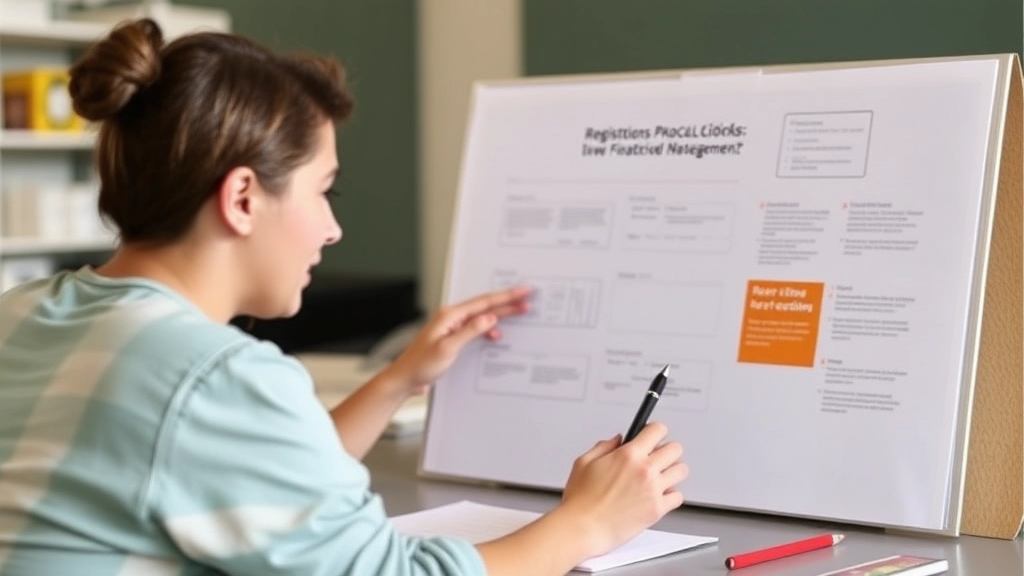
Alright, let’s dive into the registration and enrollment process for summer camps at natural history museums. This is the part where most parents start to feel the heat. But don’t worry, I’ve got your back.
Worried about missing deadlines?
Confused about what forms to fill out?
Wondering if you need to set up a tent in front of the museum to snag a spot?
No sweat. Let’s break it down step-by-step.
1. Research and Shortlist
First things first. Research the museum camps you’re interested in. Check out their websites, read reviews, and maybe even visit the museum if you can.
2. Mark Your Calendar
Most camps open registration several months in advance. Set reminders on your phone or stick a post-it on your fridge. You don’t want to miss that window.
3. Gather Information
Before you start filling out forms, make sure you have all the necessary details:
- Your child’s medical history
- Emergency contact numbers
- Any special needs or dietary restrictions
4. Online Registration
Most museums offer online registration. It’s quick and convenient. Just follow these steps:
- Create an account on the museum’s website.
- Fill out the registration form.
- Select the camp sessions you’re interested in.
- Pay the registration fee. (Pro tip: Some museums offer early bird discounts, so keep an eye out for those.)
5. Confirmation and Follow-Up
Once you’ve registered, you’ll get a confirmation email. Keep this handy. It usually contains important info like:
- Camp schedules
- What to bring
- Drop-off and pick-up times
6. Payment Plans
Worried about the cost? Some museums offer payment plans. This can make it easier on your wallet. Just check their policies and see what works best for you.
7. Waitlists
If the camp is full, don’t panic. Get on the waitlist. Spots often open up as plans change for other families.
8. Final Preparations
A week or so before camp starts, you’ll likely get another email with final details. This is your cue to:
- Label your child’s belongings
- Pack any required items
- Talk to your child about what to expect
9. Show Up and Enjoy
On the first day, arrive a bit early. This gives you time to settle in and meet the camp staff. Trust me, a smooth morning sets the tone for a great camp experience.
Got more questions? Check out the FAQ section on the museum’s website or give them a call. They’re there to help.
So, there you have it. The registration and enrollment process isn’t as daunting as it seems. Follow these steps, and you’ll be all set for a fantastic summer camp experience at your favourite natural history museum.
Frequently Asked Questions
Got questions about museum-based summer camps?
You’re not alone.
Let’s dive into some of the most common questions parents have.
What age groups are these camps for?
Most camps cater to kids aged 5-12.
Some museums also offer programs for teens.
Check the specific camp details for age requirements.
How long do these camps usually last?
Typically, museum summer camps run for one to two weeks.
Some offer single-day workshops or weekend sessions.
It varies, so look at the schedule of the camp you’re interested in.
What kind of activities can my child expect?
Loads of hands-on activities.
Think fossil digs, nature walks, and science experiments.
Workshops on everything from dinosaurs to space exploration.
It’s all about making learning fun.
Is lunch provided?
Most camps ask you to pack a lunch.
Some might offer snacks or have a cafeteria option.
Always double-check the camp’s policy.
What should my child bring to camp?
Here’s a quick list:
- Packed lunch
- Water bottle
- Comfortable clothes and shoes
- Hat and sunscreen for outdoor activities
- Any specific items listed by the camp
Are the camps safe?
Absolutely.
Museums follow strict safety guidelines.
Trained staff and low child-to-counselor ratios ensure a secure environment.
Can I get a refund if we change our plans?
Refund policies vary.
Some camps offer full refunds if you cancel a certain number of days in advance.
Others might have a non-refundable deposit.
Read the fine print before you sign up.
How do I register my child?
Most museums have an online registration process.
You’ll need to fill out a form and pay a fee.
Spots fill up fast, so don’t wait too long!
Are there any discounts available?
Some camps offer early bird discounts.
Others might have sibling discounts or scholarships.
Check the camp’s website or contact them directly for details.
What if my child has special needs?
Many camps are inclusive and can accommodate special needs.
It’s best to contact the camp directly to discuss your child’s requirements.
Still have questions?
Reach out to the camp’s customer service.
They’re there to help.
Ready to sign up?
Don’t miss out.
Register early to secure your child’s spot.
FAQs Recap
- Age groups: 5-12, some for teens
- Duration: 1-2 weeks, some single-day
- Activities: Fossil digs, nature walks, science experiments
- Lunch: Usually packed, check policies
- Essentials: Lunch, water, clothes, hat, sunscreen
- Safety: Strict guidelines, trained staff
- Refunds: Vary, check policies
- Registration: Online, quick spots fill-up
- Discounts: Early bird, sibling, scholarships
- Special needs: Contact camp directly
Got more questions?
Feel free to ask.
We’re here to make sure your child has an unforgettable summer camp experience.
FAQs for Summer Camps at Natural History Museums
What are the benefits of sending my child to a museum-based summer camp?
Museum-based summer camps combine fun and education, offering interactive learning experiences, boosting social skills, sparking curiosity, and providing expert guidance in a safe environment.
How do museum camps make learning fun?
Museum camps use hands-on activities and interactive learning instead of traditional lectures. Kids can explore topics like dinosaurs, ancient civilizations, and marine biology through engaging activities.
Are museum camps good for my child’s social skills?
Yes, children at museum camps work on projects together, share ideas, and make friends, which significantly boosts their social skills.
How do museum camps encourage curiosity?
Museum camps spark curiosity by encouraging kids to ask questions, explore, and think critically, which are essential for lifelong learning.
What kind of guidance do children receive at museum camps?
Children learn from museum professionals who are experts in their fields and passionate about sharing their knowledge with kids.
Are museum camps safe for children?
Yes, museums are well-supervised and have strict safety protocols, making them one of the safest places for kids.
How do I choose the right camp for my child?
Consider your child’s interests, the camp’s focus, age groups, schedule, activities, reviews, safety protocols, and cost to choose the right camp.
What should I know about the camp’s schedule and activities?
Check how long the camp runs, whether it fits into your summer plans, and what activities your child will be doing, such as hands-on workshops, field trips, and guest speakers.
How can I ensure my child has a memorable visit?
Plan ahead by checking schedules, packing essentials, and dressing comfortably. Engage with the experience by encouraging curiosity, joining workshops, and exploring exhibits. Make it fun with games and capturing memories, and connect with other parents and children.
What’s the registration and enrollment process like for museum camps?
The process involves researching and shortlisting camps, marking your calendar for registration dates, gathering necessary information, registering online, confirming and following up, considering payment plans, and preparing for camp.
What should I prepare before the camp starts?
Label your child’s belongings, pack required items, and talk to your child about what to expect. Arrive early on the first day to settle in and meet the camp staff.
What if the camp is full when I try to register?
If the camp is full, join the waitlist. Spots often open up as other families’ plans change.
For more detailed information, check the FAQ section on the museum’s website or contact them directly.
References
-
10 Reasons to Send Your Kids to Summer Camp
-
What to Expect When You Sign Your Kid Up for a Smithsonian Summer Camp
-
How to Choose the Right Summer Camp for Your Child

